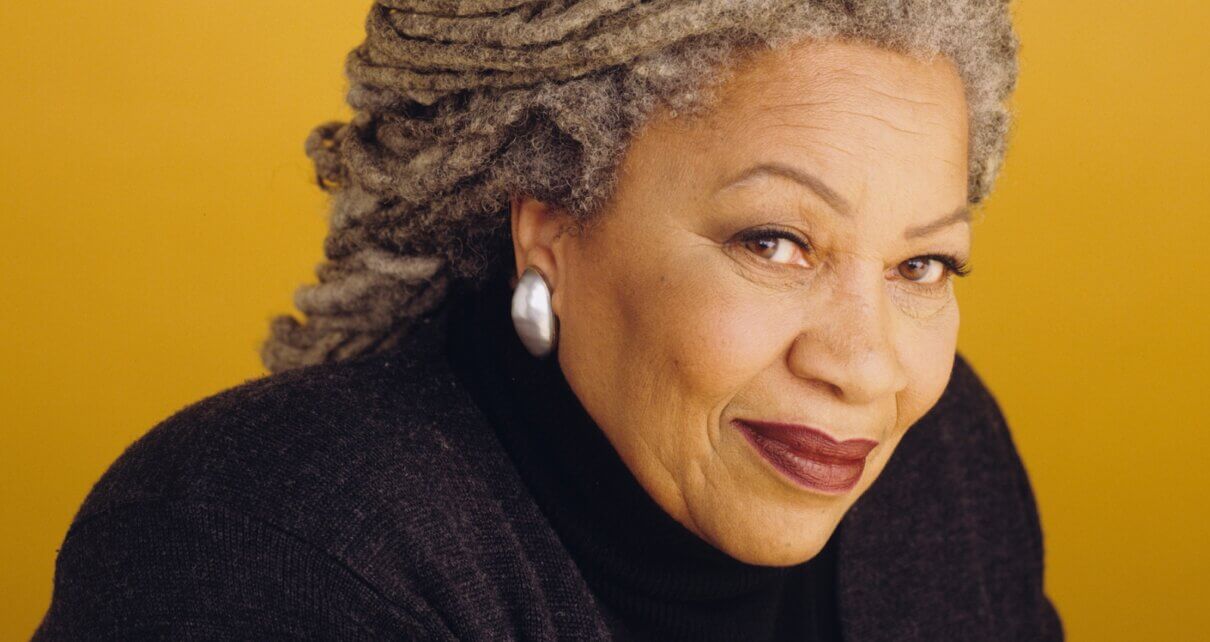Monmouth University’s Department of English hosted its third annual Toni Morrison Day celebration on Friday, Feb. 18. This year’s celebration included student and faculty scholarship panels, a faculty roundtable discussion, poetry and poster contests, and a presentation from keynote speaker Dr. Regina Duthely.
“We are trying to make Toni Morrison Day as inclusive an event as possible by involving the larger Monmouth University community in the presentations and engagement with several pertinent issues,” explained Abha Sood Ph.D., Senior Lecturer in the Department of English and Chair of the Toni Morrison Day Planning Committee.
Morrison was a highly celebrated author who is best known for her novels depicting Black culture in America and the struggles faced by African Americans throughout history. She made her debut as an author in 1970 with her novel The Bluest Eye, quickly gaining popularity due to her unique narrative technique. In 1993, she became the first African American woman to win the Nobel Prize in Literature.
Following Morrison’s untimely death due to pneumonia complications in 2019, Ohio Governor Mike DeWine declared Feb. 18, the late Ohio-native author’s birthday, to be officially recognized as “Toni Morrison Day’’ in the state of Ohio. However, Morrison’s legacy is celebrated across the U.S. as she is remembered for her contributions to American literature and the advancement of Black culture.
“History, memory, storytelling, and counter-stories reclaim and preserve identity and fight erasure of Black individuals, families, and culture. This was a central theme of our third annual Toni Morrison Day,” said Linda Sacks, Lecturer in the Department of English and member of the Toni Morrison Day Planning Committee. “Throughout the day, participants were prompted to reflect on the power of narrative and imagination to witness the truth.”
Audience reflection and participation were especially encouraged by keynote speaker Dr. Regina Duthely, an Assistant Professor of English at the University of Puget Sound, noted that she wanted to focus on “communal knowledge building” during her presentation “The Stories Black Women Tell: (Counter)storytelling and Embodied Freedom.”
“The keynote especially reminded us of the importance of taking charge of our destinies by writing ourselves into the creative, artistic, social spaces that we are kept out of,” Sood said. “Each panelist emphasized the necessity of avoiding elision and occupying those movements and historical periods that African Americans have been written out of, and acknowledging the injustice that marginalized people have faced over the years.”
Duthely’s current research explores Black women’s embodied digital rhetorics. As a rhetorician who studies social media and digital culture, she looks at online digital spaces as sites of resistance to think about the ways that Black women are engaged in embodied acts of freedom.
“The Black female body is loaded with meaning and weighed down by the expectations imposed by a society that only seeks to consume and destroy that body. I’m always interested in the ways that Black women work to reclaim that body, to exercise ownership over that body,” said Duthely.
Her work examines the ways in which Black women engage in counter-story in order to reclaim truths about their own lives and ownership of their bodies, both of which are consistently denied by dominant voices that overshadow the voices of marginalized populations. She notes the constant dismissal of personal stories as inaccurate or biased and seeks to emphasize the importance and appreciation of lived experiences from those who have been silenced by such sentiments.
“Toni Morrison did this work in her writing. She told the stories of women and girls that would have been dismissed and discounted while simultaneously being destroyed by the world around them,” said Duthely, who noted the impact of several of Morrison’s novels on her own life and what they meant to her.
Building off of Morrison’s work, Duthely emphasizes the significance of reclamation in order to redefine existing narratives that harm Black women, focusing specifically on how this has been done through conversations on social media platforms by allowing more voices to contribute to the public sphere.
“Dr. Duthely’s work lies at the intersection of history, culture and literature. Given her focus on digital rhetoric, her scholarship conceptualizes and articulates Black women’s bold and essential occupation of digital spaces,” explained Sood. “We selected her as the keynote speaker as she is the voice of the younger generation of scholars who are defining the literary digital spaces artists and activists must inhabit to have a durable impact.”
Morrison’s contributions to literature and society as a whole will continue to be celebrated at Monmouth. “Toni Morrison has not just been a writer but also an editor, historian, guide, a keeper of traditions, and a torchbearer for this generation,” said Sood. “She has reminded all of us in myriad ways the importance of history is in remembering our collective past as a nation.”
“She is an inspiration to numerous contemporaries and future creative writers and social activists,” Sood continued. “We are hoping to honor that legacy every year.”




